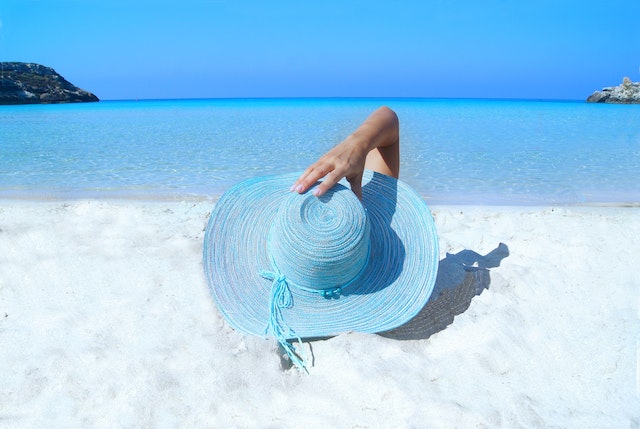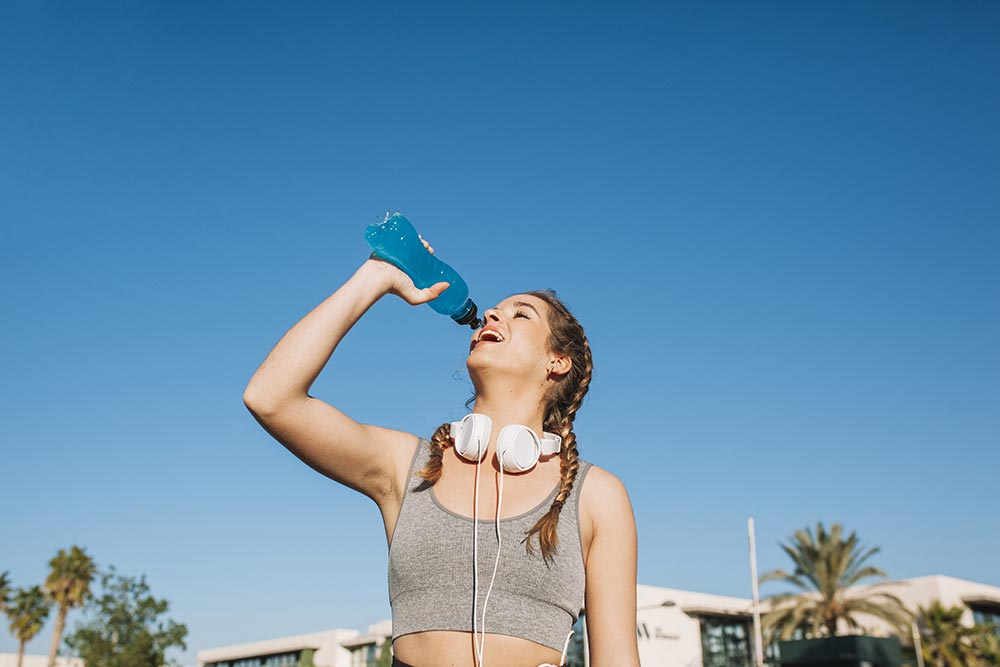Protect your Skin from the Sun this Summer?

Summer is finally here, and people around the country look forward to spending time outdoors in the sun. Nothing is better than spending a warm summer day soaking up the sunshine at the beach or pool or doing another outdoor activity alone or with your loved ones; however, many people forget to protect your skin from too much exposure to its harmful effects is extremely important.
Sun-Proof your Summer with 10 Essential Skin Protection Tips
In this short blog post, we will be detailing easy but highly effective ways to protect your skin and maintain healthy skin to enjoy the beautiful summer weather all summer long. From simple changes in everyday lifestyle habits to using tried-and-true products that are specifically designed for summer time sun protection, keep reading to learn how you can take charge of your health and have a great time in the outdoors this summer!
1. Always Wear Sunscreen to Protect Skin
This might sound like a no brainer, but it is a crucial step in sun protection that many people forget. One of the most important steps you can take to protect your skin from the sun is to apply an effective, high SPF sunscreen every single day before you go outside, no matter what activities you anticipate engaging in. Choose a daily sunscreen for your face and body that contains an SPF of 30 or higher, and make sure it is broad spectrum to protect against both UVA and UVB rays. Don’t forget to reapply often for maximum protection!
Now the question arises, how long does sunscreen protect your skin?
Sunscreen typically provides protection for about 2 hours, after which it should be reapplied to maintain its effectiveness in shielding the skin from harmful UV rays. However, factors like sweating, swimming, or rubbing the skin can reduce the sunscreen’s longevity, requiring more frequent application.
2. Stay Indoors to Recover the Skin
When staying indoors, taking regular breaks and seeking shelter indoors is essential. This allows your skin to recover from prolonged sun exposure and helps reduce the cumulative damage caused by the sun’s rays. If you do not have sufficient indoor space that keeps you cool and are thinking about moving to a new residential area, consider the services of Black Tie Moving Delaware.
3. Take Cool Showers Frequently
Cool showers help to lower your body temperature, soothe any sunburned or irritated skin, and remove sweat, dirt, and sunscreen residue that can clog pores and lead to breakouts. It’s best to avoid using harsh soaps or hot water, as they can strip away your skin’s natural oils, which act as a protective barrier. Instead, opt for mild, gentle cleansers that won’t further irritate your skin.
4. Limit Your Time in the Sun from 10 am to 4 pm
The best way to protect your skin from the sun is to limit your exposure by avoiding being outdoors during the peak hours of 10 am to 4 pm when UV rays are strongest. If you do go out during these times, seek shade whenever possible and keep your skin covered with sunscreen and clothing.
5. Use Sun-Protective Accessories
Use sun-protective accessories to enhance your skin’s protection from the sun. While seeking shade is important, sometimes shade may not be readily available, especially in open outdoor spaces. That’s where sun-protective accessories can be incredibly helpful.
- Wide-brimmed hats protect your face, neck, and ears from the sun. For shade, use hats with a 3-inch brim. Tightly woven straw, cotton, or UPF hats provide excellent sun protection.
- Use umbrellas and parasols that are portable sun blockers.
- You can also wear sun protective clothing.
6. Stay Hydrated to Keep Skin Healthy
Why is it important to stay hydrated especially in the summer when the sun can be very hot? When you drink a lot of water, your face stays fresh from the inside out. When your skin is well-hydrated, it is better able to keep its natural layer function, which can help protect it from sun damage.
Also, staying hydrated is good for the general health of your skin and can avoid redness and pain caused by too much heat. So, during the summer, make sure to drink enough water throughout the day to keep your face and body refreshed.
7. Be Mindful of the Reflective Surfaces
When you’re out in the sun, it’s important to be aware of reflective surfaces such as water, sand, snow, and concrete. These surfaces can reflect the sun’s rays, intensifying their effects on your skin. This means that even if you’re not directly under the sun, you can still be exposed to harmful UV radiation. So, take extra precautions when you’re near these reflective surfaces. Ensure you’re wearing protective clothing and applying sunscreen to exposed areas.
By being mindful of reflective surfaces, you can reduce the risk of sunburn and protect your skin from potential damage caused by the sun’s rays bouncing off these surfaces.
8. Check the UV Index for Skin Protection
Stay informed about the UV index in your area to protect your skin. The UV index measures the sun’s intensity and indicates the risk of sunburn and skin damage. Higher values mean greater risk. Check weather websites or apps for daily updates. Plan outdoor activities during times of lower UV levels, like early morning or late afternoon.
9. Check the Labels of Medications
Some drugs might make your skin more sensitive to the sun, increasing your chances of sunburn. Examine the labels of any medicines you’re taking, including over-the-counter meds, to determine whether they contain photosensitizing properties. If they do, use higher SPF sunscreen and avoid direct sunlight while going out. If you have any concerns, speak with your doctor.
10. Install UV-blocking film
Installing UV-blocking film, blinds, or tight-weave curtains is an efficient technique to protect your skin from the sun’s dangerous UV rays indoors. These treatments serve as a barrier, screening out a large percentage of the UV light that enters via windows. UV-blocking characteristics serve to lessen the risk of sunburn, premature aging, and skin damage caused by extended indoor exposure to sunshine. By adding these window coverings, you can create a more secure and sun-protected atmosphere in your home.
The Bottom Line
It is essential to protect your skin from the sun’s damaging rays, particularly during the summer. You may enjoy the sun by employing a mix of efficient indoor and outdoor measures. From using broad-spectrum sunscreen to seeking shade and wearing protective clothing, every step you take adds an extra layer of defense.

news via inbox
Sign up and never miss out on the latest news and updates at HighStuff





